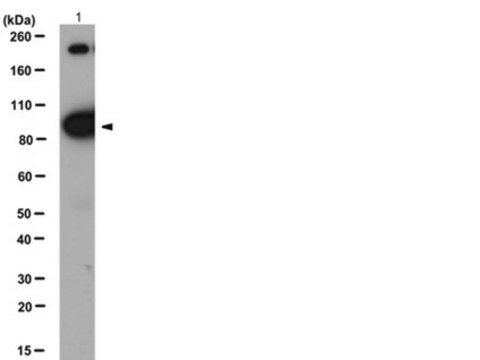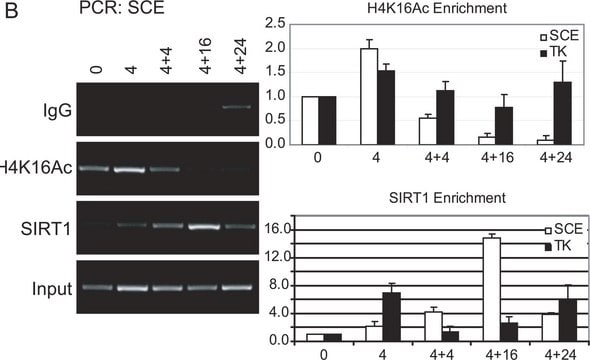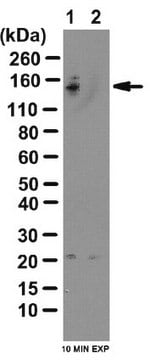07-303
Anti-phospho-Acetyl CoA Carboxylase (Ser79) Antibody
Upstate®, from rabbit
Synonym(s):
acetyl-CoA carboxylase 1, acetyl-CoA carboxylase-alpha, acetyl-Coenzyme A carboxylase alpha
About This Item
Recommended Products
biological source
rabbit
Quality Level
antibody form
purified antibody
antibody product type
primary antibodies
clone
polyclonal
species reactivity
canine, human
species reactivity (predicted by homology)
bovine (immunogen homology), chicken (immunogen homology), rat (immunogen homology), mouse (immunogen homology), dog (immunogen homology)
packaging
antibody small pack of 25 μg
manufacturer/tradename
Upstate®
technique(s)
western blot: suitable
NCBI accession no.
UniProt accession no.
shipped in
ambient
target post-translational modification
phosphorylation (pSer79)
Gene Information
human ... ACACA(31)
General description
Specificity
Immunogen
Application
Signaling
Insulin/Energy Signaling
Quality
Western Blot Analysis: 1:500 dilution of this antibody detected endogenous phospho-Acetyl CoA Carboxylase (Ser79) in lysate from Lambda phosphatase-treated and untreated A375 cells.
Target description
Linkage
Physical form
Storage and Stability
Handling Recommendations: Upon receipt, and prior to removing the cap, centrifuge the vial and gently mix the solution.
Other Notes
Legal Information
Disclaimer
Not finding the right product?
Try our Product Selector Tool.
recommended
Certificates of Analysis (COA)
Search for Certificates of Analysis (COA) by entering the products Lot/Batch Number. Lot and Batch Numbers can be found on a product’s label following the words ‘Lot’ or ‘Batch’.
Already Own This Product?
Find documentation for the products that you have recently purchased in the Document Library.
Our team of scientists has experience in all areas of research including Life Science, Material Science, Chemical Synthesis, Chromatography, Analytical and many others.
Contact Technical Service







